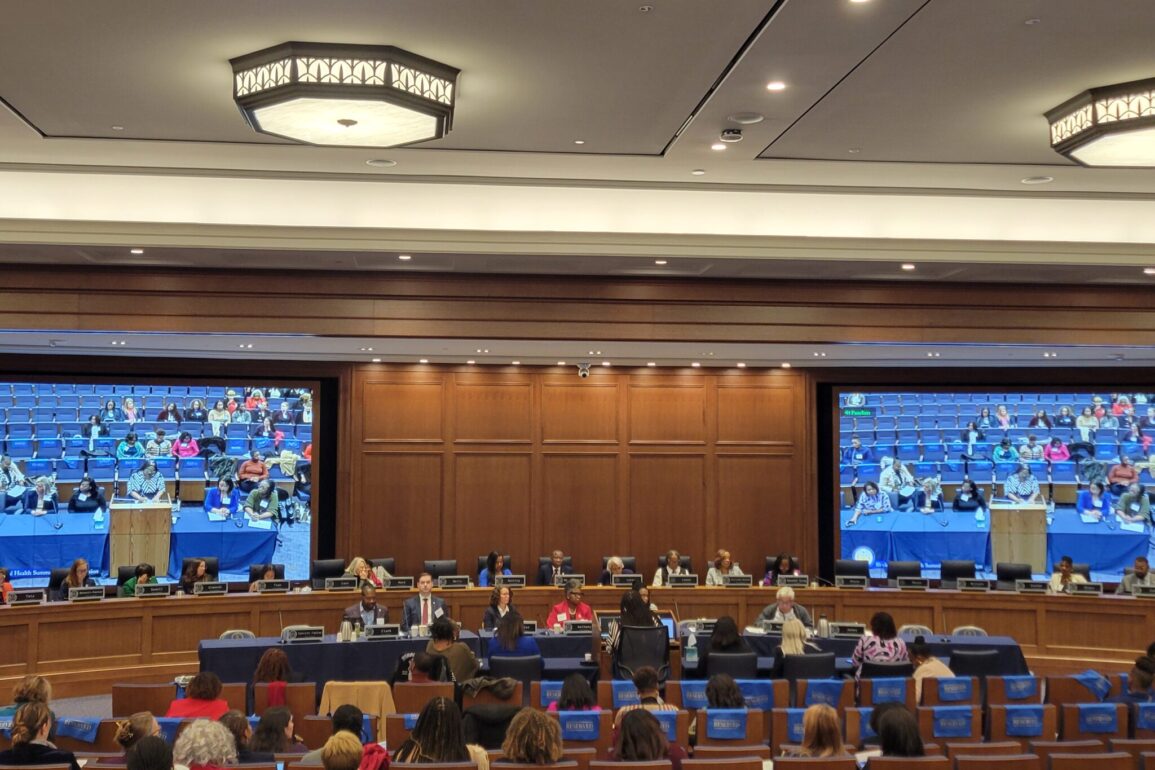
Virginia lawmakers plan to introduce a “momnibus bill” in each chamber next year to help enhance maternal healthcare access, reduce mortality rates and address racial and unconscious bias.
A play on the term, “omnibus,” the forthcoming legislation will be able to address a series of factors that contribute to negative maternal health outcomes.
“Too many mothers, especially Back mothers, are facing preventable risk in childbirth,” said Sen. Louise Lucas, D-Portsmouth. “We must invest in comprehensive maternal care that ensures every woman, regardless of race or income, receives the quality health care she deserves.”
Lucas and House Speaker Don Scott, D-Portsmouth, had assembled the Black Maternal Health Summit to bring together a coalition of lawmakers from various states, healthcare professionals and maternal healthcare advocates. After an initial gathering in the morning, people split off into breakout groups for roundtable discussions through the afternoon. Lawmakers from other states like Alabama, Arkansas, Georgia, Louisiana, Mississippi and Texas were present, who will also press for related policy in their home states.
“We’re facing this issue in 2024 because of a lack of implementing policy,” said Georgia state Senator Tonya Anderson. “The system was designed for failure, for a ‘superior’ and an ‘inferior’ class — we’re changing it.”
Among Virginia’s omnibus packages will be an effort to require unconscious bias training for nursing license renewals. The bipartisan bills cleared the state legislature earlier this year before Gov. Glenn Youngkin vetoed them.
Lawmakers say that more targeted training will be an important piece of the puzzle when it comes to preventable deaths or complications from childbirth.
Data from the Centers for Disease Control and Prevention shows that Black women are more likely to die from pregnancy complications than white women. Studies have also shown that women of color are more likely to have negative health outcomes, in part, from racial bias by healthcare providers.
“Being Black is not a risk factor — racism is,” Noelene Kimiko Jeffers, a certified nurse-midwife and professor at John Hopkins School of Nursing, said during a discussion panel earlier in the day.
More than the unconscious bias training, advocates and lawmakers view the omnibus package as another chance to revive other maternal health bills that either failed to advance last year or were vetoed by the governor.
For instance, House Majority Leader Charniele Herring’s bill to reestablish a maternal mortality data task force was vetoed by Youngkin in May before he announced the formation of his own version of a force a month later. Other maternal and fetal health-related bills were continued to next year and could become part of the omnibus package.
Meanwhile, Youngkin has supported expanding maternal health hubs as part of targeted economic and public health initiatives in the Petersburg area, and this year he signed a bill to require health insurance coverage for doulas.
During a panel at the start of the day, Birth in Color founder Kenda Sutton-El stressed how state legislatures can support community-based organizations. This is because existing organizations like hers — which provides doula care for clients and has a policy advocacy wing that engages the state legislature — already have built-in trust with different communities.
Certified nurse-midwife Nichole Wardlaw also noted how lawmakers can support this type of healthcare worker with access to hospitals.
“Help us get credentialed,” she said, as not every midwife has ease of access to clinics and hospitals around the state.
Wardlaw explained how some patients that may have wanted a home birth find that they need to go to a hospital for an epidural to manage pain, but “I can’t always go with them.”
Amid the closures of obstetrics units at hospitals in rural areas of the state, midwives and doulas have played a role in bolstering maternal healthcare and patient advocacy. Certified nurse-midwives — who specialize in pregnancy, childbirth and postpartum care — have helped fill gaps in areas where there are shortages of other healthcare professionals with these specialties.
A survey commissioned by Virginai’s Department of Medical Services revealed this past summer that long enrollment periods for new Medicaid patients pushes them further into their pregnancies before they can get routine care and a rural health committee has been convening around the state to compile a list of legislative recommendations — to include maternal healthcare issues — ahead of next year’s General Assembly session.
On what’s to come from Friday’s summit, Del. Candi Mundon King, D-Prince William, said some of the bills lawmakers want to reintroduce will come back as standalones or in the omnibus package, and that more policy will stem from coordination and brainstorming across states.
“We are working across the South with different legislators to look at bills to go even further than we have,” she said.



